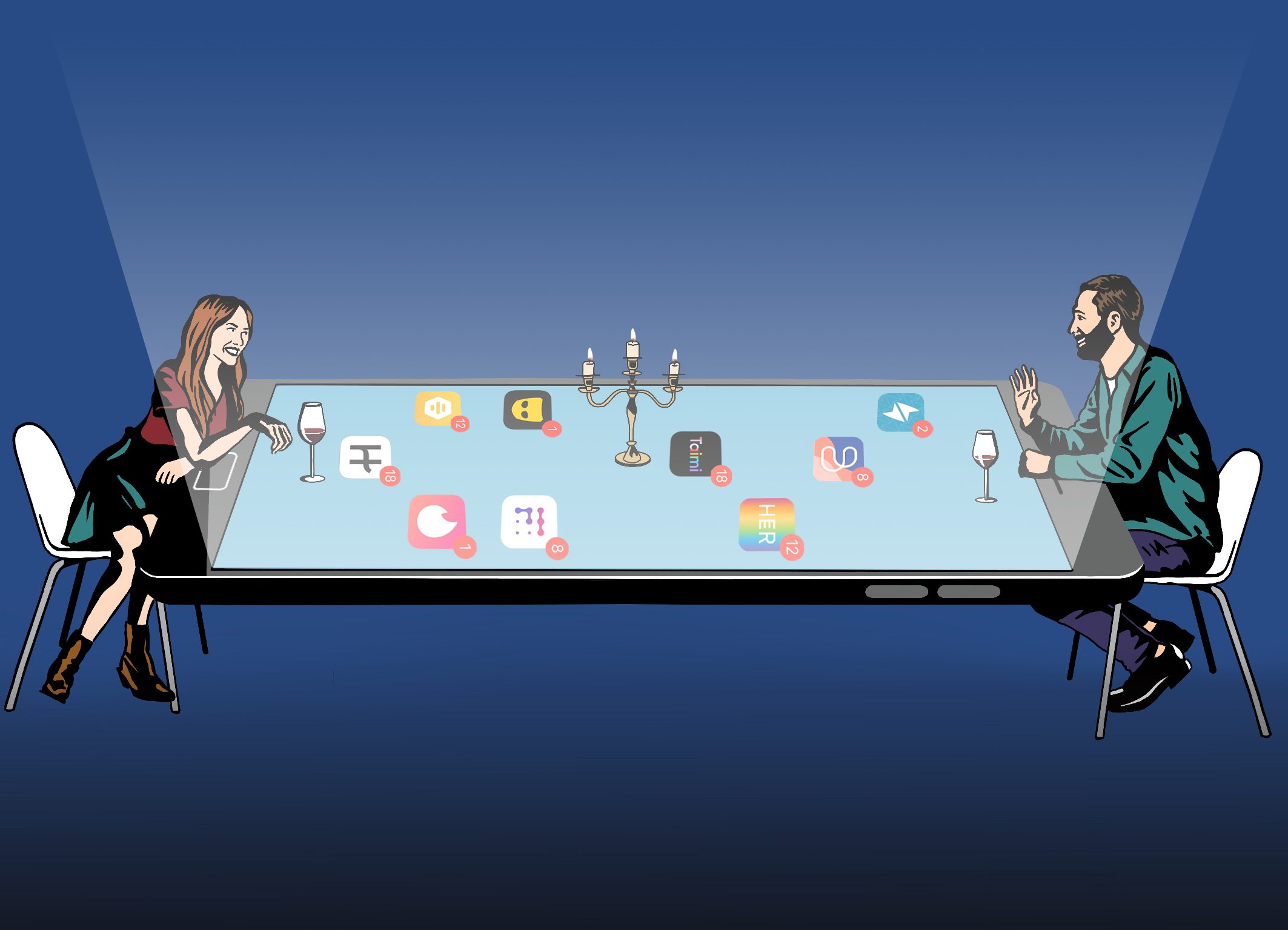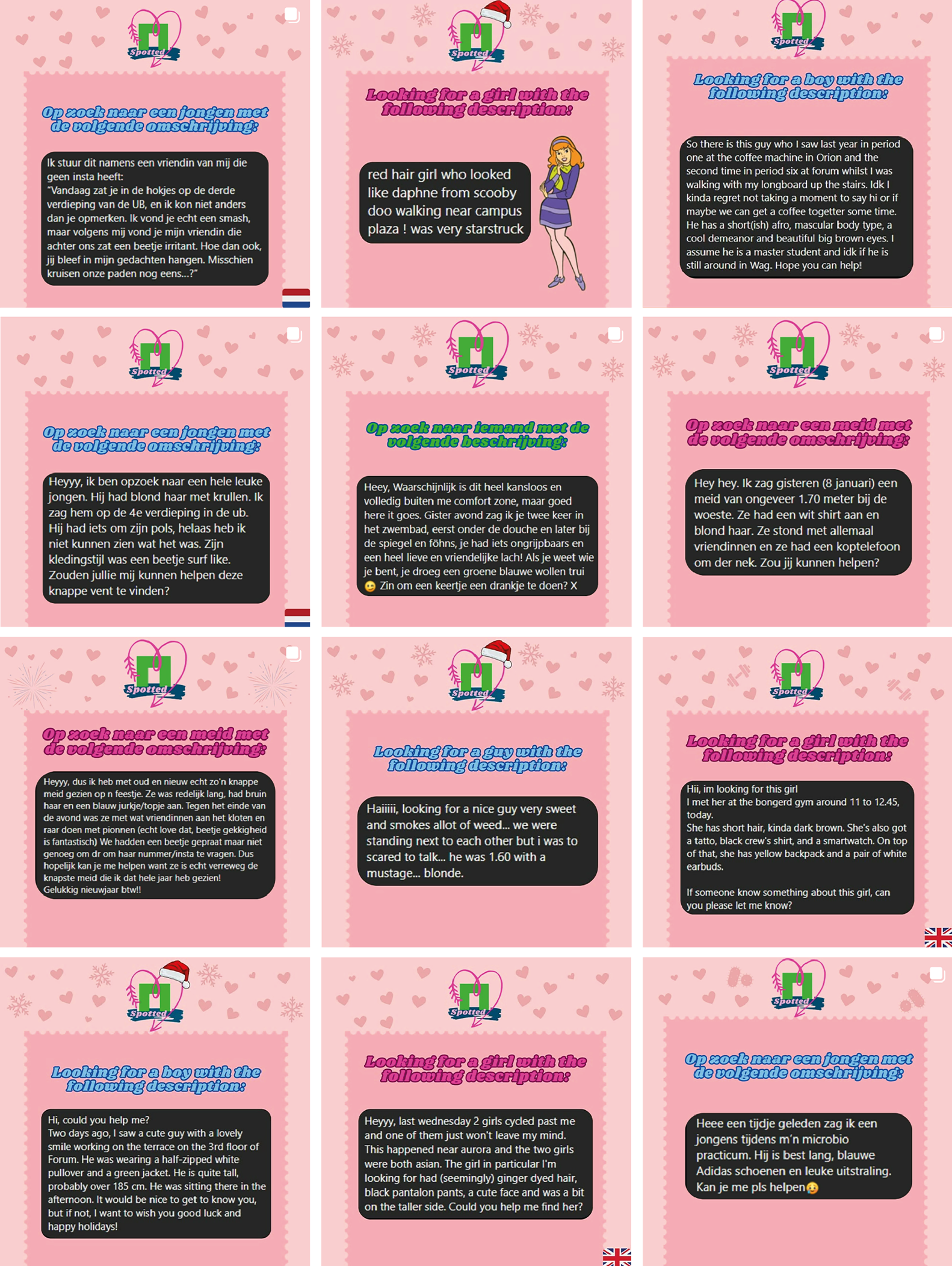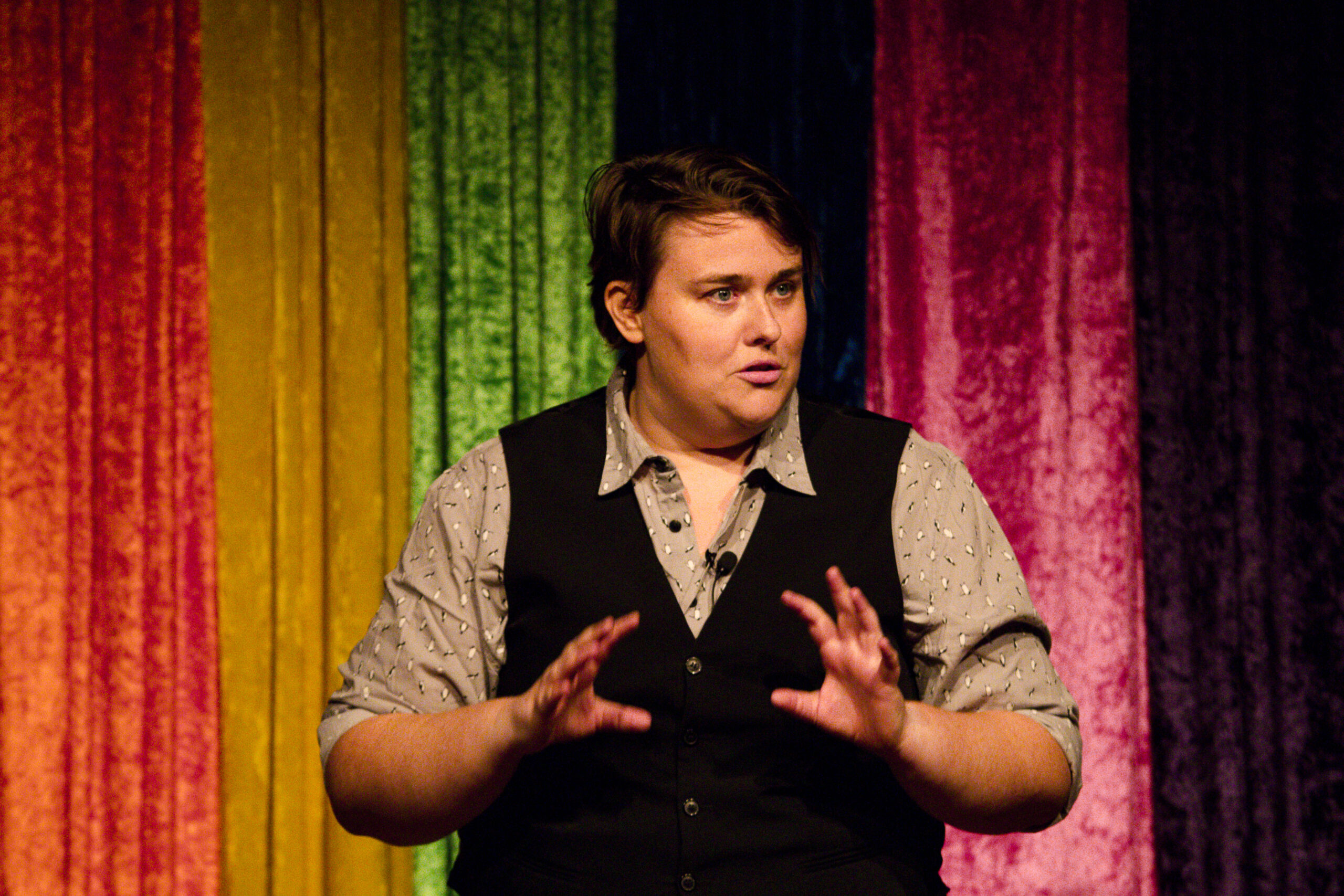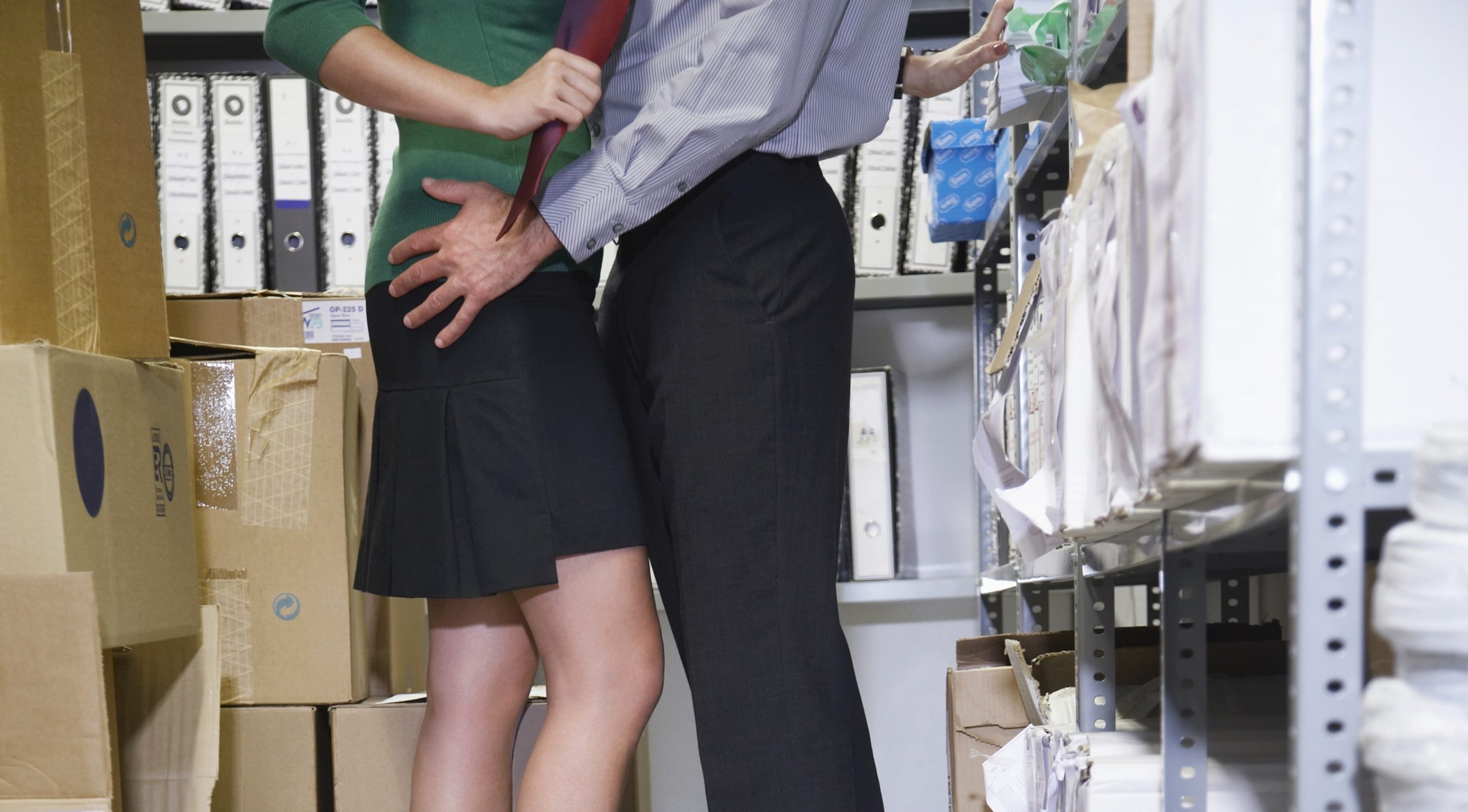How do students and PhD researchers fare when they are looking for their Valentine? How do you still meet new people without parties, drinks and outings? Journalist Stijn Schreven took the plunge on Tinder in 2020 but hasn’t found his true love yet. How are others doing? Three students and a journalist talk about love in times of Covid-19.
‘Would you like to go on a date with me soon?’ I ask my match on Happn. ‘Sounds good to me,’ she replies with a smiley emoji. We set a date. We both like walking and – not unimportantly – that’s about the only option still open to us. It is lockdown, December 2021. Everything is closed and it gets dark early in the evening. The day before the date in question it is raining. It’s like a grey curtain of disappointment. Tomorrow the same, the weather forecast indicates. We cancel the date. No new date gets arranged. Shit.
Half of all singles between 18 and 39 have given up on love for the duration of the pandemic, says an international study by YPulse. A poll on Resource online shows that in Wageningen too, one in three respondents (out of a total of 65) find dating impossible during Covid times.
Dating apps
For those who don’t want to give up, dating apps are one of the few options left for meeting new people. ‘Go on as many dating apps as possible and see which one works for you,’ Danish PhD student Simone advises. She uses Tinder, Happn, Hinge and Breeze. ‘I already had them, but now I use them a lot more. Because where do you meet people anymore, in the supermarket with a face mask on? Forget about it. I meet people through an app and then we go for a walk. Hinge is more serious: you have to answer questions on it. Breeze offers you two or three profiles a day. If one of them’s a match, you set up a blind date.’
Simone often picks up her date at the bus station, after which they walk in the direction of the arboretum or the water meadows. ‘For a first date it is good to choose neutral territory,’ she says. ‘And to do something together, a shared hobby or sport. Then, whether it’s a good date or a bad date, you’ve made good use of your time. I went kayaking once, for example. Me in a bikini, him in swimming trunks. We stopped at a fort with a restaurant and had a beer sitting among the normally dressed guests.
I swipe now and then and see what comes of it
It was really fun.’ The impact of Covid on her dating life is less than the expat effect, by the way: ‘As soon as I tell them I’m doing a four-year PhD, some men lose interest because they think I’ll be leaving right away.’
Taimi, Her and Fiorry
Cecilia, from South America, came to the Netherlands last summer to do a Master’s degree. She is a bisexual trans woman. ‘Until I came here, I was still in the closet. I tried to date as a man in a heteronormative society. Here I have the chance to be myself and discover what I like.’ Besides Tinder and Bumble, she uses dating apps for LGBT people: Taimi, Her and Fiorry. ‘I mainly use Bumble and Her; there are a lot of bisexual and lesbian women on those apps. I wasn’t planning on it, but once I got here, I realized I could use these apps without coming across people from home. I swipe every now and then and see what comes of it.’
Marjolein, who has just completed her PhD, is not yet on a dating app. ‘Personally, I think it’s a meat market and I’m too shy for it. Maybe I’ll succumb in the spring. Now I ask people in my network if they know any single men and then go on blind dates. The first blind date I had was in autumn, when we were still allowed to sit on a café terrace. We had a beer and it was very nice.’
Sharing the sofa
I myself started with Tinder and later I also used Happn and Bumble. Happn looks for people in your neighbourhood, and on Bumble only the woman can start the conversation. I usually go on a walking date. You can also do something new or exciting together. An adrenaline rush makes you like each other faster, they say. For a date in Arnhem, I suggested going up the Eusebius tower to the glass balcony. Plenty of excitement for me since I’m afraid of heights. Unfortunately, she was not at all, so I stood there with my knees knocking.
But what do you do when everything is closed and you have already had a series of walking dates? The next option is to meet at home. There isn’t much in between. To me, it feels like skipping a phase: you don’t know each other that well yet and suddenly you’re standing together at the cooker or sharing the sofa.
Simone recognizes the big step from walking to meeting at home. ‘It quickly becomes too intimate or relationship-like. It feels forced. If it clicks and the bars and restaurants are closed, you can suggest having a drink at home. But that is open to misunderstanding too.’
Marjolein had a blind date at home arranged through a housemate, which actually went well. ‘She had invited him and it was super informal.’ As a single person, she has the advantage that she always falls within the lockdown rules on visitor numbers, so friends often invite her over. ‘The disadvantage is that I am then the only guest.’
Vaccinations and face masks
And what about the awkwardness that can arise around the questions of vaccinations and face masks? Cecilia: ‘We insisted on doing self-tests before we met. A refusal to do that is reason enough for me to postpone the date.’ Simone turned down a date with someone who wasn’t vaccinated: ‘After Christmas, he texted me to say he had had his shot and asked if we could date now. He offered to show me his QR code, but I thought that was going too far.’
Tinder’s report The future of dating, which came out in early 2021, tells us that more users now mention their boundaries in their profile or discuss them when they meet online. On Bumble, users fill in how they prefer to date: online or in-person, outdoors or indoors, at one and a half metres distance or less, with or without a face mask. On walking dates, I sometimes felt very conscious of the one and a half metres. Even if you walked closer to each other, there was a barrier to touching each other.
I think it’s a meat market and I’m too shy for it
After visiting a museum in Den Bosch, I had a drink with my date on a café terrace, after which we walked back to the station. At one point, I couldn’t resist asking: ‘I’d like to give you a hug, is that OK?’
Simone often hugs on the first date. ‘It feels natural, I would do it normally. I think it is important to have some physical contact. Without a hug you can unintentionally come across as distant, and I think it’s a good way to see if there is any chemistry.’ For Marjolein, social distancing has its plus sides. ‘I sometimes jump into relationships, so it’s good for me to keep a little more distance and take things a bit more slowly.’
Hopeful
How do these singles see the year ahead? Marjolein doesn’t lose sleep about Covid anymore. ‘After two years, you get kind of nonchalant about it,’ she says. ‘Every moment is a good moment. I am hopeful now that everything is opening up a bit again. Spring is also a much nicer time to be dating. I’m also hoping to pluck up the courage to go on a dating app. Now that I’ve got my PhD, there’s more room in my head for it too.’
For Cecilia, there is more pressure. ‘I’m nervous,’ she says. ‘I have limited time to gain experience, to make up for lost time. It feels like I’m running out of time. I feel a bit lost, not necessarily because of Covid, but it does make it harder.’
Simone is optimistic: ‘I have not given up on finding love and I never will. I hope things will get better. Now that the bars and restaurants are opening again, it already feels like normal.’
And me? Well, I’ve recovered from my December blues. The next walking date is planned. All we need now is some sunshine.
The names of Cecilia and Marjolein have been changed for reasons of privacy.

 Illustration: Valerie Geele
Illustration: Valerie Geele 

